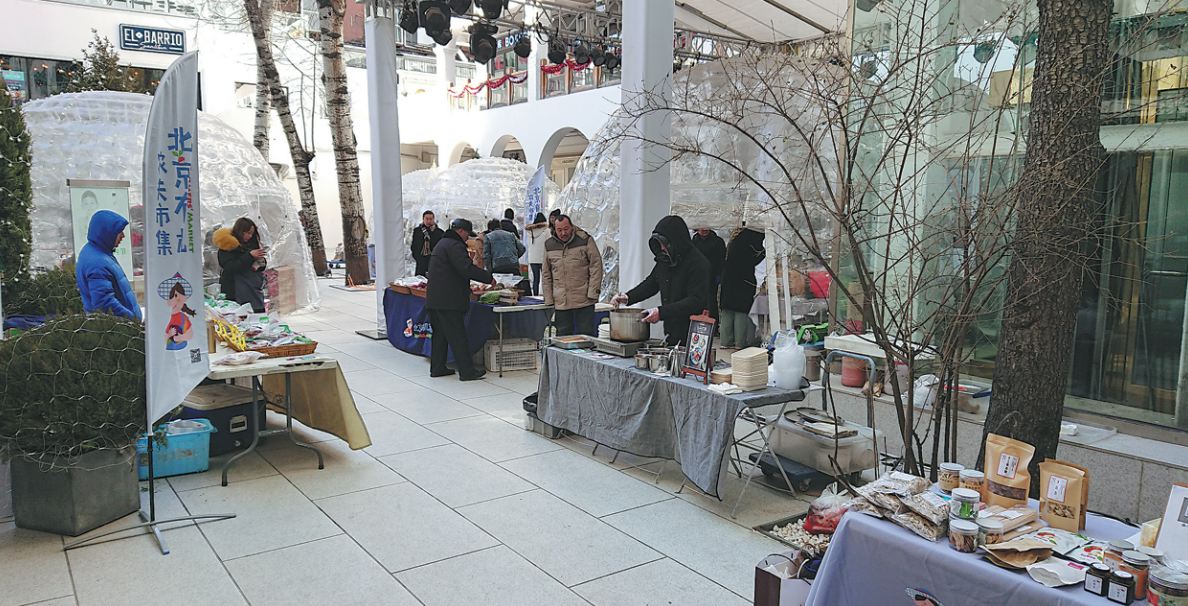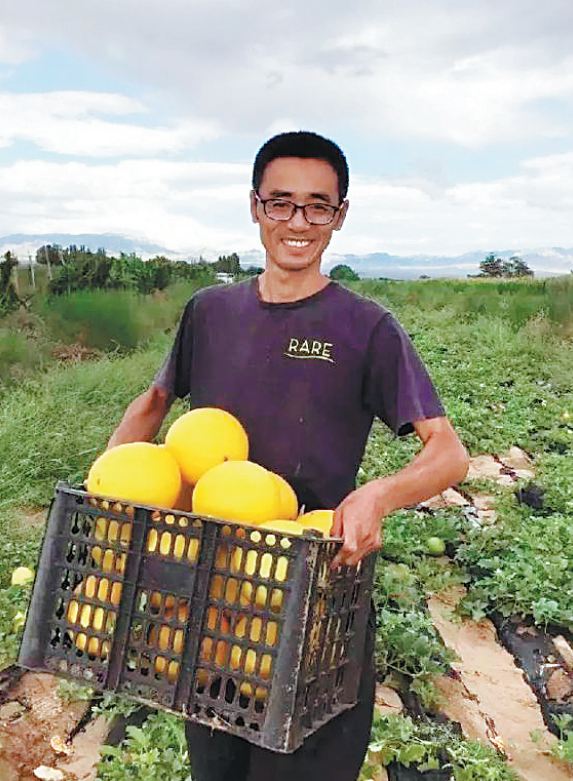Lifestyles of new-generation farmers


Previously city-dwellers, educated professionals are returning to rural areas to revivify agricultural practices, technologies
BEIJING - Wang Xin is 33 years old. He is a landscape designer by profession and farmer in practice. The strawberries growing in his organic plantation on the southern outskirts of Beijing are believed among his clients to be "the best in China".
Every day in the megacity of Beijing, when people his age are rushing among jammed commuter traffic, endless meetings and Power-Point slides like hamsters on a wheel, Wang lives a life in the countryside, far away from the urban crowd.
He rises with the sun, works all day in the field or goes to the farmers' market to sell his fresh produce from the land that he has been working on, and by the end of the day, goes to bed as the night falls, with sore muscles and a heart that's content.
"I have hardly given it thought," he said when asked by a Xinhua News Agency reporter whether it was hard work. "It has become a lifestyle. This is the life I choose to live."
Like Wang, in this country where people see food as a heavenly essence, many urbanites, mostly with a higher educational background and white-collar work experience, have chosen to return to the countryside, to dedicate their mind and strength to the pursuit of the freshest flavors and healthier nature.

Research peasants
Every Tuesday, Saturday and Sunday, Wang Xin brings strawberries freshly picked the night before to Beijing's organic farmers' market. These fruits have grown naturally in nutrient-rich soil, without any use of fertilizers, pesticides, growth hormones or chemicals of any sort.
"I don't plan to be filthy rich, or I wouldn't have gone for organic farming," Wang said, laughing. He is a man of medium build, athletic, with a healthy tan. It is hard to relate him to a designer who used to spend days and nights in front of a computer screen.
Having majored in landscape botany, Wang has always been a plant lover. At the age of 25, when he realized that he had been developing an office belly and his nine-to-five lifestyle had become a passionless routine, he quit his job, rented two plantation sheds in a suburb of the city, and rebooted his career as a farmer.
Last week, Wang was able to present this winter's first batch of ripe fruits that he planted in September. The work had begun in July, when he prepared a mix of all-natural organic matter to enrich the soil.
The formula has been perfected through years of research and experiments in collaboration with Beijing University of Agriculture, to simulate the formation of the fertile dark forest soil in Northeast China, known for its high crop productivity.
Logically, the true foundation of organic farming lies in the soil content. If the soil is good, the outcome is safe and tasty without the need for any fertilizing chemicals, Wang pointed out.
But quality produce is not the only objective. Wang hopes to build a production model that also rehabilitates the soil itself. In regular plantations, the soil usually would result in degradation within a matter of years after being overexploited.
Wang's transition to the farm has not always been a smooth ride. But after a rough start, which he considers a valuable lesson learnt, he has gone back to the university and visited his colleagues in Tochigi Prefecture, Japan - known as the homeland of the Tochiotome strawberry variety - to study the most avant-garde technologies in the organic farming world.
"For organic farming to become truly sustainable, revitalizing the soil is key," concluded the nicknamed "research peasant."
"I am certain that in three to four years, the soil that I have been reviving will keep getting healthier and healthier," he said.
Wang is not alone.

In Alshaa, a semiarid region located in the northwestern Inner Mongolia autonomous region, Ma Yanwei, a master of science in ecology from Beijing Normal University, has spent years reinvigorating the salinized soils by applying water-saving methods to cultivate fruits and crops that are suitable for the local conditions.
Sweet melon, for example, has become a best-selling produce of his farm Zhiliangtian. The smallholding was named in tribute to Zhi Liangzhi, the name for Chinese philosopher Wang Yangming's (1472-1529) belief in the innate conscience being the guiding principle of people's actions and their understanding of the outside world.
Ma aims to find the ideal organic farming methodology to both maximize the utilization rate of the scarce local water resources and to revive the soil.
"As long as the soil improves, it is only natural to harvest healthy produce," Ma told a Xinhua reporter.
In the last five to six years, Ma has seen more and more young people returning to the countryside to take on farming. In 2017, he set up a network for these "new peasants" to communicate, exchange their experiences and help each other, "so we can avoid long detours and mistakes previously made by others," he said.
"If everyone does a good job, the land will only better recover," he said, when asked if his approach simply creates more competitors.



































